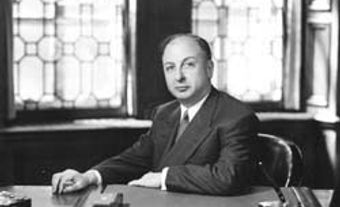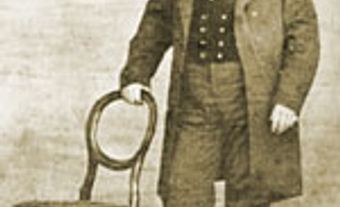Early Life and Career
Zimmerman was born to a well-connected family. His great-uncle was British Columbia premier Thomas “Duff” Pattullo and his father, also named Adam Hartley, retired as chair of Canada’s Defence Research Board in 1967. Among his early friends at the University of Toronto was Walter Gordon, who later became minister of finance in Lester B. Pearson’s government. Despite this, he fought assertions from western Canadians that he was part of an eastern “Establishment.”
Zimmerman’s career with Noranda Mines began modestly, as an assistant comptroller tasked with modernizing the firm’s financial accounting practices. The job became more challenging as Noranda expanded into forestry with the purchase of Northwood Mills in 1961. He was instrumental in overseeing the company’s purchase and expansion of pulp and sawmills throughout British Columbia’s interior. By 1974, Zimmerman was executive vice president of Noranda and chairman of the company’s newly acquired subsidiary in Edmundston, New Brunswick.
Noranda Inc.
In April 1981, Zimmerman was instrumental in Noranda Mines’ acquisition of 49 per cent of Vancouver-based forestry company MacMillan Bloedel’s stock. He also joined the company’s board. In August of that year, investment firm Brascan Corp., with support from the Caisse de dépôt et placement du Québec, secured a 39.2 per cent controlling interest of Noranda stock. The control of Noranda, a resource company, by an investment firm, caused some concern for Zimmerman, who questioned the motivations of a firm that had no specific expertise in resource management.
Zimmerman rose to become CEO of Noranda in 1982. As part of an effort to make Noranda Inc. more manageable, Zimmerman oversaw a restructuring of the company’s mining, manufacturing, oil and gas, and forestry interests into largely independent units. He also took over as chairman of Noranda Forest Inc. in 1987, and kept this role until his retirement in 1994.
Key Industry Representative
As a well-known figure in the Canadian forestry industry, Zimmerman became the industry representative for key political debates, including labour relations, environmental concerns, forestry education, and the 1988 Canada–US Free Trade Agreement. In this capacity, he served as chairman of the Pulp and Paper Association in 1976 and the Canadian Forest Industries Council in 1984.
He was sharply critical of union motivations, contending that union leaders often advanced wage demands disproportionate with industry revenues, and going so far as to call for a royal commission into their operations in 1976.
Zimmerman defended his firm’s environmental record by insisting that forest companies were highly motivated to ensure sustainable forest practices, since most Canadian forests were publicly held. Further, he pointed to considerable improvements in sulphur dioxide emissions from the company mills. He served as a board member for the World Wildlife Fund and demonstrated an interest in bird conservation. However, he also fell under frequent criticism from environmentalists like David Suzuki and journalists who questioned the depth of his concern for the environment.
His interest in higher education was evident in his campaigning for the University of Toronto’s forestry department. He served on the department advisory board and used his connections with Premier Bill Davis to temporarily preserve funding for its undergraduate program. His connection to the University of Northern British Columbia endures, as its university archives hold his files.
Zimmerman served as a key industrial representative during the 1982–87 Softwood Lumber Dispute. In 1986, as part of a deal to help facilitate the free trade agreement with the United States reached in 1988, the federal government agreed to apply a 15 per cent tariff on softwood lumber exports to the United States, because US negotiators believed that Canadian lumber firms received an unfair subsidy through low stumpage fees. Zimmerman was strongly opposed to this concession, but as a known friend of former Liberal Prime Minister John Turner, he had limited influence with Prime Minister Brian Mulroney’s cabinet ministers. He emerged from the issue skeptical of the benefits of the 1988 free trade agreement with the United States.
Personal Life
Zimmerman met his first wife, Janet Lewis, while studying at the University of Toronto. They had four children, Barbara, Thomas, Mary, and Kate. Adam and Janet divorced in 2005. Later that year he married former Conservative cabinet minister Barbara Jean McDougall.

 Share on Facebook
Share on Facebook Share on X
Share on X Share by Email
Share by Email Share on Google Classroom
Share on Google Classroom


